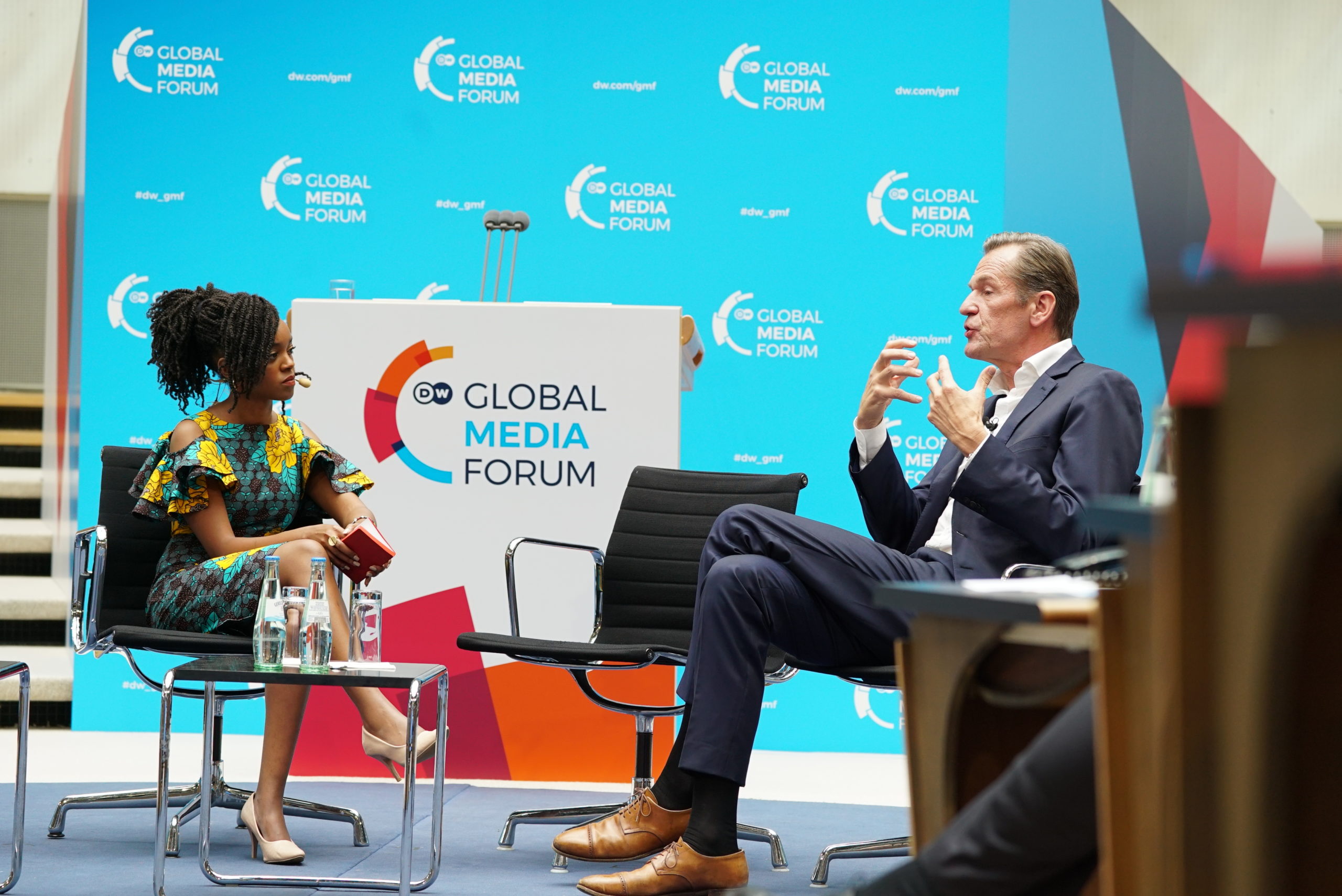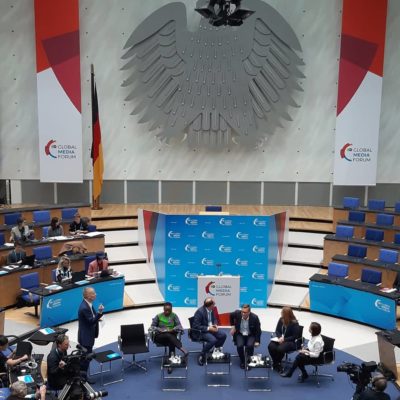Photo Credit: Deutsche Welle
by Aris Myriskos
The opening session at the Deutsche Welle Global Media Forum 2019 addressed the timely and
complex topic “Who’s got the power in the media landscape?”

DW Global Media Forum 2019 | Talk | Mathias Döpfner (CEO Axel Springer) and Edith Kimani (Deutsche Welle)
Deutsche Welle‘s journalist Edith Kimani had a lively discussion with Mathias Döpfner (CEO of the
Axel Springer Media Group and President of the Federation of German Newspaper Publishers). The
focus was on the recent changes that platforms like Google, Facebook and YouTube brought on the
global media landscape. Within a high competitive context, established media organizations, in their
effort to optimize their own reach, become more and more dependent on these digital platforms.
Against this backdrop, the discussion analyzed the results of the asymmetrical relationship between
journalists and platforms in the media field.
Döpfner discussed the challenges resulted from technology and business models disruptions. One
issue that was raised was the free use of high cost creative content and journalistic news by digital
platforms. Döpfner commented on the unfair position for content creators: “That is a big, big issue
but I am a lot more optimistic than I used to be because we are about to solve that. There are very
constructive talks, the regulators play a positive role and Brussels has some groundbreaking
decisions, in the U.S. also the mindset is changing.”
On the issue of data protection, Döpfner said that he always “thought and still think that the data can
only be owned by the individual. They should not be owned by the state, they should not be owned
by company. The discussion about privacy is leading to the right direction.”
Moreover, Döpfner stressed his confidence in high quality journalism. Döpfner regards the argument
that new technologies bring a bad competition, which results to superficial journalism as cliché and
wrong, since the in-depth editorial analysis has the potential to be highly competitive. According to
Döpfner, people are still interested in sources with strong value that will take the responsibility for
their actions and their mistakes. Hence, he is an optimist in regards to the changes from subscription
requirements by media, as he thinks people are willing to pay for a good source that they can trust.
Döpfner disregarded the argument that subscriptions pose a barrier to access to information.
Overall, he agreed that what matters is a good story. He asserted that “best journalists had and will
have the power.”




